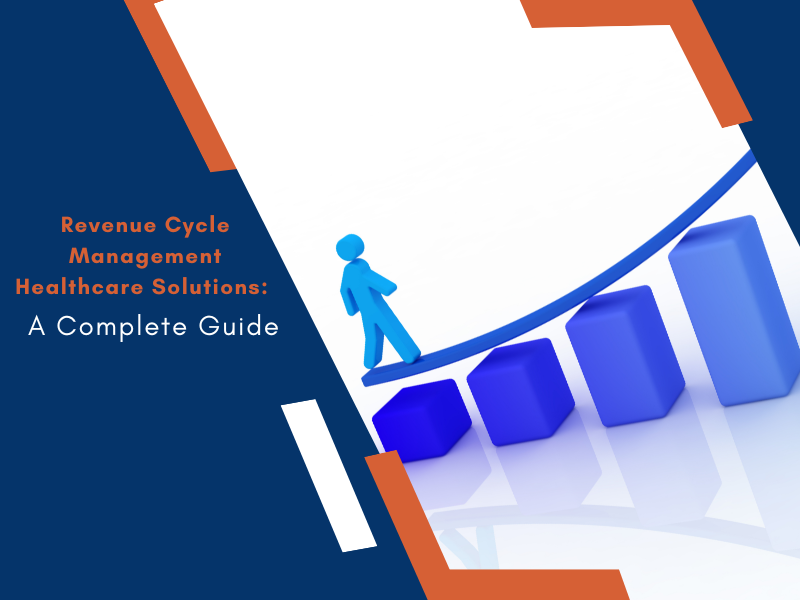In today’s fast-paced healthcare landscape, ensuring financial stability and operational efficiency is a top priority for healthcare providers. Effective revenue cycle management healthcare solutions are critical for maintaining steady cash flow, reducing administrative burdens, and enhancing patient satisfaction. Whether you manage a small clinic or a large hospital, understanding and optimizing your revenue cycle can make a significant difference in your organization’s financial health.
This guide will walk you through the fundamentals of revenue cycle management (RCM), its components, challenges, and the best practices for achieving efficiency in your healthcare operations.
What is Revenue Cycle Management in Healthcare?
Revenue Cycle Management (RCM) is the financial process that healthcare providers use to track patient care episodes from registration and appointment scheduling to the final payment of a balance. The goal of RCM is to ensure that healthcare organizations get paid efficiently for their services while minimizing revenue leakage.
The process includes several critical steps, such as:
- Patient registration
- Insurance eligibility verification
- Medical coding and billing
- Claims submission
- Payment processing
- Managing denials and rejections
By streamlining these processes, healthcare providers can improve cash flow, reduce administrative stress, and deliver better patient care.
Why is Revenue Cycle Management Important?
Efficient revenue cycle management healthcare solutions are essential for several reasons:
- Financial Stability: Proper RCM ensures timely reimbursements from insurers, which is crucial for maintaining operational stability.
- Regulatory Compliance: Healthcare providers must navigate complex coding, billing, and insurance rules. Effective RCM ensures compliance with these regulations, minimizing legal risks.
- Enhanced Patient Experience: Streamlining billing and payment processes can lead to higher patient satisfaction by reducing confusion and frustration.
- Operational Efficiency: Automation and optimized workflows reduce administrative burdens, enabling healthcare providers to focus on delivering quality care.
Key Components of Revenue Cycle Management
1. Patient Registration and Scheduling
The revenue cycle begins with patient registration. Collecting accurate demographic and insurance information at this stage ensures smooth billing and claims processing later.
2. Insurance Verification
Verifying insurance coverage before services are rendered helps avoid claim denials and ensures patients are aware of their out-of-pocket responsibilities.
3. Medical Coding and Billing
Accurate medical coding translates healthcare services into billable codes for insurance claims. Errors in coding can lead to claim denials or delays, making this step critical to the revenue cycle.
4. Claims Submission
Claims are submitted to insurance providers for reimbursement. Timely and error-free claims submission is key to avoiding revenue delays.
5. Payment Processing
After the claim is approved, the provider receives payment from the insurer, and the patient is billed for any remaining balance.
6. Denial Management
If a claim is denied, RCM teams must analyze the reason, correct the issue, and resubmit the claim promptly to recover lost revenue.
7. Reporting and Analytics
Regular monitoring of financial metrics helps healthcare organizations identify inefficiencies and optimize their revenue cycle.
Common Challenges in Revenue Cycle Management
Despite its importance, RCM is fraught with challenges that can disrupt cash flow and increase operational costs. Some common issues include:
- Coding Errors: Inaccurate coding can lead to denied or delayed claims.
- Claim Denials: Errors in claims submissions or incomplete patient information often result in denials.
- Regulatory Changes: Staying compliant with ever-changing healthcare regulations can be overwhelming.
- Patient Payment Delays: High out-of-pocket costs can lead to payment delays, affecting cash flow.
- Lack of Automation: Manual processes increase the risk of errors and slow down operations.
Best Practices for Optimizing Revenue Cycle Management
To overcome these challenges and improve efficiency, healthcare providers should consider the following best practices:
1. Invest in Technology
Using advanced RCM software or partnering with a professional RCM service provider can automate critical tasks like coding, billing, and denial management.
2. Train Your Staff
Continuous training for coding and billing staff ensures they stay updated with the latest regulations and industry standards.
3. Focus on Denial Management
Analyze denial patterns and implement strategies to address root causes. A proactive approach to denial management can significantly improve cash flow.
4. Enhance Patient Communication
Clear communication about billing and payment responsibilities improves patient satisfaction and reduces payment delays.
5. Leverage Data Analytics
Use data-driven insights to identify inefficiencies, monitor performance, and optimize the revenue cycle.
6. Outsource RCM Services
Outsourcing to experienced RCM providers like Apaana Healthcare can help reduce administrative burdens and improve financial outcomes.
Emerging Trends in Revenue Cycle Management
As the healthcare industry evolves, so do the approaches to revenue cycle management. Here are some trends shaping the future of RCM:
1. Automation and Artificial Intelligence (AI)
AI-powered tools are transforming how healthcare providers manage billing and claims. Automation reduces manual errors and speeds up processes.
2. Patient-Centric Billing
With the rise of high-deductible health plans, patients are bearing a larger share of healthcare costs. Simplifying billing processes and offering flexible payment options are becoming essential.
3. Data Analytics and Predictive Insights
Advanced analytics can help providers predict cash flow, identify trends in denials, and optimize operations for better outcomes.
4. Focus on Value-Based Care
As healthcare shifts from volume to value, RCM solutions are adapting to accommodate value-based payment models, ensuring better financial and clinical outcomes.
How Apaana Healthcare Can Help
Optimizing your revenue cycle management processes requires expertise, technology, and a patient-centric approach. That’s where Apaana Healthcare comes in.
At Apaana Healthcare, we drive operational excellence with our global healthcare management solutions. Our expertise lies in:
- Member Enrollment: Ensuring seamless registration and insurance verification for your patients.
- Claims Administration: Timely and accurate claims submission to maximize reimbursements.
- Medical Billing & Coding: Providing error-free coding and billing solutions to minimize denials.
- Provider Engagement: Enhancing communication between healthcare providers and insurers for smoother workflows.
By outsourcing your RCM needs to Apaana Healthcare, you can focus on delivering quality care while we handle the complexities of your revenue cycle. We ensure cost-effective solutions tailored to your organization’s unique needs.
Conclusion
Effective revenue cycle management healthcare solutions are vital for the financial health and operational efficiency of any healthcare organization. From patient registration to final payment, every step of the revenue cycle plays a crucial role in ensuring steady cash flow and reducing administrative burdens.
By leveraging technology, following best practices, and partnering with experienced providers like Apaana Healthcare, you can overcome challenges, improve efficiency, and focus on what matters most—delivering exceptional patient care.
Choose Apaana Healthcare as your trusted partner in revenue cycle management. With our expertise and tailored solutions, we help healthcare providers achieve financial stability and operational excellence. Let us streamline your revenue cycle so you can focus on improving lives.





